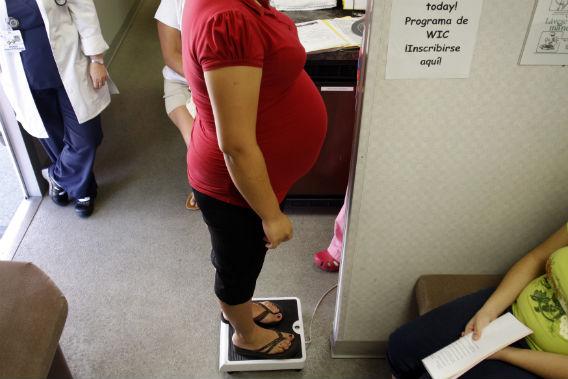Trish Staine had just finished running 10 miles while training for a half-marathon when she started going into labor. The mother of three said she hadn’t gained any weight or felt any fetal movement in the months before and had no idea she was pregnant. Is it possible for a woman not to know she’s pregnant before she starts giving birth?
Yes, but it’s rare. It’s not uncommon for a woman to have an unplanned pregnancy—that’s the case for half of all pregnancies in the United States. Most pregnancies, regardless of planning, are detected in the first 20 weeks. Only a very small number of mothers make it to the labor stage without finding out they’re expecting. It’s hard to say just how many births we’re talking about. A frequently cited study in the British Medical Journal found that surprise births happened in Berlin “about three times more often than triplets.” The authors came up with an estimate of 1 in 300 to 600 pregnancies, but to be more conservative, since the probability of triplets in America is about 1 in 8,000, you could estimate that the probability of not detecting a pregnancy before labor is about 1 in 2,700.
The women most susceptible to surprises of this nature are those who have irregular periods, for they are less likely to notice the most obvious early indicator of pregnancy: suspension of the menstrual cycle. There’s more than one reason a woman might not have her period for several consecutive months. She might be an underweight athlete or anorexic. Or she might suffer from polycystic ovary syndrome. Certain medications can suppress menstruation, too.
There are plenty of reasons why pregnancy may never cross a woman’s mind. She might think she’s too old to get pregnant. She might think she or her partner is infertile. She might have an overly strong faith in the effectiveness of birth control. Of course, she could also be in denial. A woman may not want a baby and therefore ignore the indicators that she’s pregnant.
For a woman who doesn’t think she could be pregnant, many of the classic signs can be explained away. Fetal movement? It could be gas or indigestion. Morning sickness? A stomach virus. Weight gain? Bad diet and lack of exercise. Obese women may not gain noticeable amounts of weight during pregnancy. Women such as Staine, who have had children before, are less likely to miss the signs than first-time mothers, but it’s not unprecedented.
Surprise births make for fun stories, and they can often yield healthy babies. But failing to detect a pregnancy presents risks to the health of both the mother and the child. For one, it means missing out on important prenatal testing, monitoring, and vaccinations. It also means the mother doesn’t know to avoid smoking, drinking alcohol, or doing drugs during the pregnancy.
Got a question about today’s news? Ask the Explainer.
Explainer thanks Stephen Thung of Ohio State University Wexner Medical Center and Iffath Hoskins of NYU Langone Medical Center.
